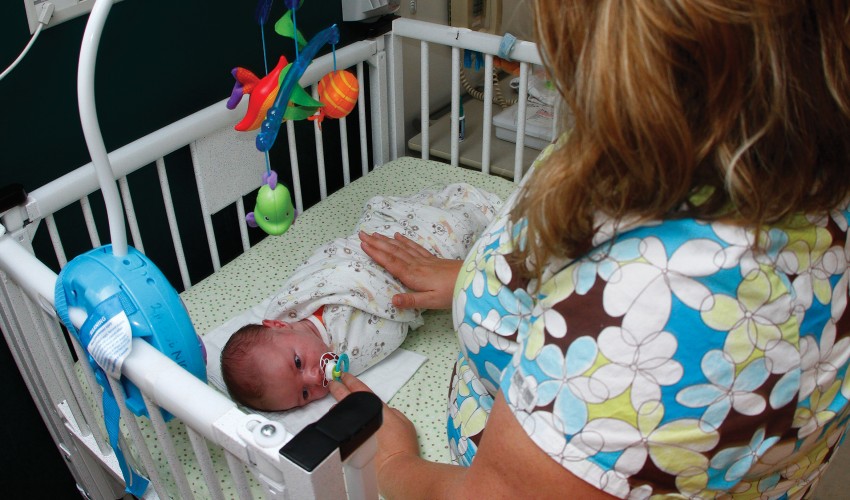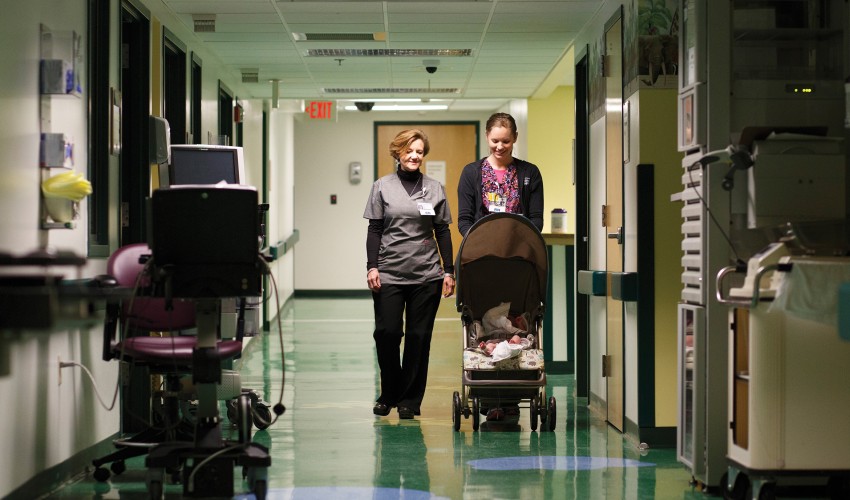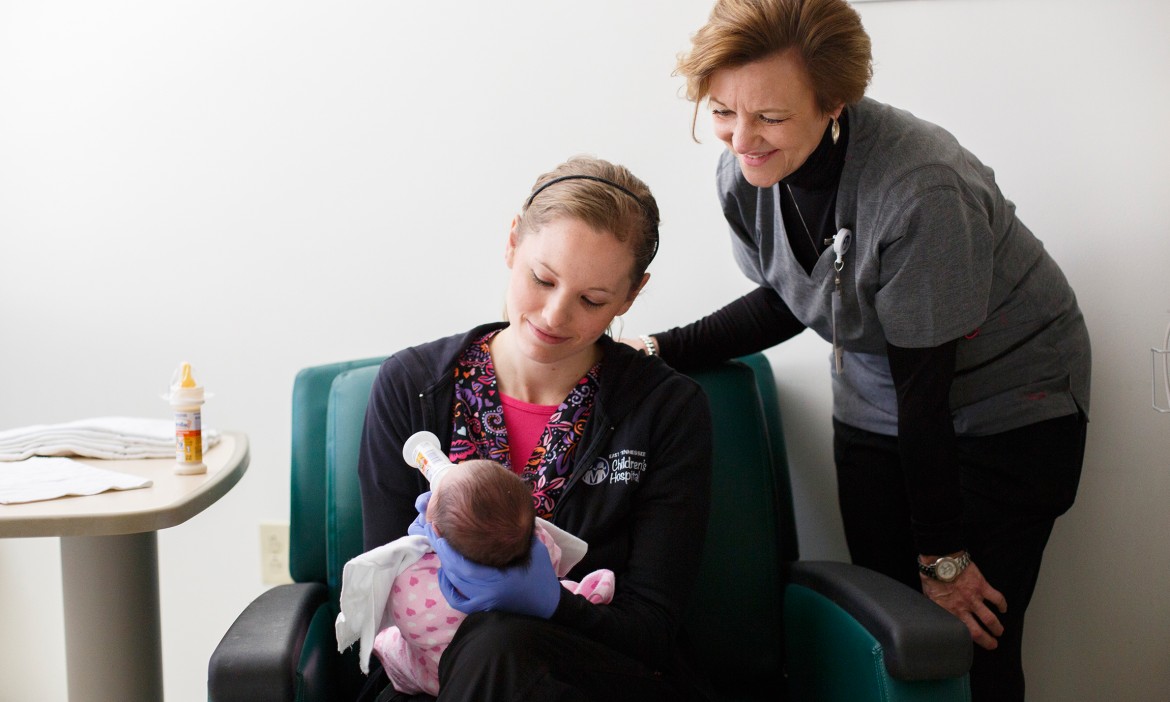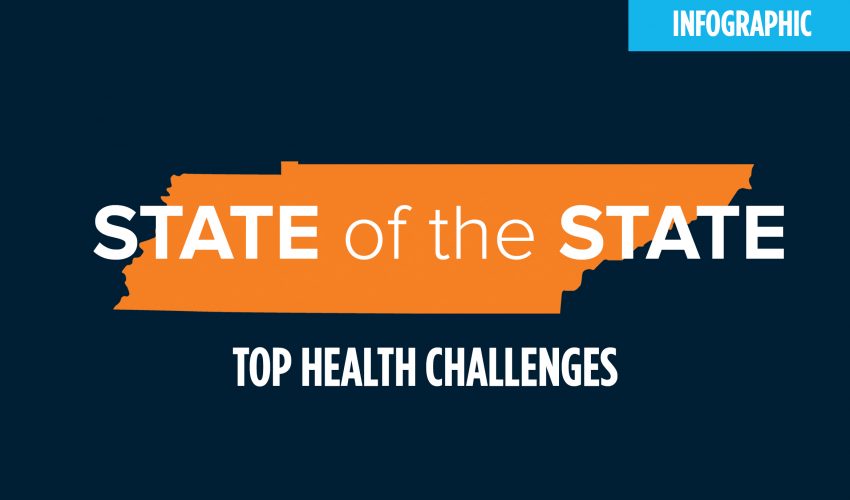“It’s the cry — so different from other infants. The cry will pierce your soul because it tells you how much pain these babies are in.”
Those are the calm yet impassioned words of Sheri Smith, RN, nursing director for critical care services at East Tennessee Children’s Hospital (ETCH). In the past five years she has seen more newborns than ever before come into the world dependent on drugs — specifically opioids like Suboxone that are used for pain management or addiction recovery. Young mothers take the drug during pregnancy, often with a prescription, not understanding that they are transmitting the drug to their unborn child.
“During pregnancy, the baby’s brain is being bathed in opioids,” Smith says. “When the supply is cut off at birth, that baby goes into withdrawal.”
The withdrawal process, horrific for an adult, takes an even more terrible toll on a baby.Their stomach cramps up severely, and their natural reaction is to curl up, but that happens so much that their skin gets raw from all the writhing. They claw at their faces. Their nerve endings are extremely sensitive to touch, sound and light. They can’t tolerate food; they hiccup, sneeze, vomit. It is nearly impossible to comfort them, and the symptoms can last for weeks. This is Neonatal Abstinence Syndrome (NAS).
When that heartbreaking scenario kept playing out at the Neonatal Intensive Care Unit (NICU) at ETCH in Knoxville, Smith and her colleagues realized they were dealing with an epidemic that had no established medical protocol. And so they created one.

Intensive, empathetic care
In 2010, ETCH put its NAS treatment process in place. Each NAS baby gets evaluated using the Finnegan Scale, a scoring system of 20 symptoms that helps the clinical staff determine the proper treatment for weaning the child off of drugs. If the symptoms are severe, the babies may be treated with small amounts of morphine, chosen because it leaves the system relatively quickly.
The special NAS Unit designed to keep these tiny patients as comfortable as possible has 16 beds. The private rooms stay dark and quiet. The babies are swaddled in blankets to minimize writhing, and trained volunteers spend time cuddling and comforting the babies.
“When the symptoms are under control, then you can wean them off of the drugs,” says Smith. “With experience we have been able to shave about five to seven days off the length of a hospital stay for our NAS babies. The average stay is now 17 to 20 days.”

Sheri Smith and Paige Vantrease take a calming stroll with a NAS patient.
The NAS Unit at ETCH has been so successful that Smith is often asked to speak to other hospitals and communities that face the same issue.
“The reason we got so good at this is that 35 to 50 percent of babies in the NICU are NAS,” she says.
“We are the hot spot in the state, but the problem is spreading all along the Appalachian Trail and most hospitals don’t know what to do about it.”
And while the focus at the NAS Unit is on getting babies well, the work that they do naturally forces them to come to terms with the drug problem in the area. NICU nurses were not trained to treat drug addiction, and they are dealing with mothers who are addicts. So they are getting more training in behavioral health and are learning how to deal with people in the addiction cycle, to teach them how to take care of their babies.
“We can’t just fix the baby and expect everything to be OK,” says Smith.“We have to open our eyes and take care of the mom. Every mother has a magic moment, when they see their baby suffering and realize it is their fault. That’s when they may ask for help.”



